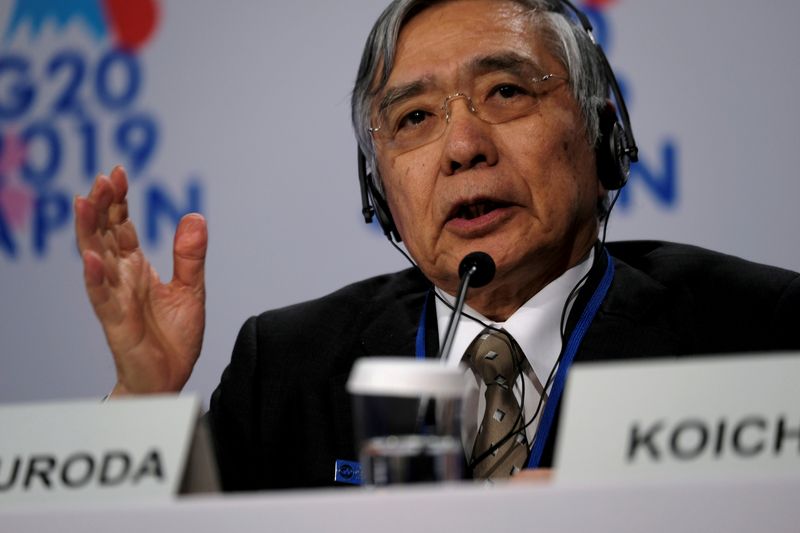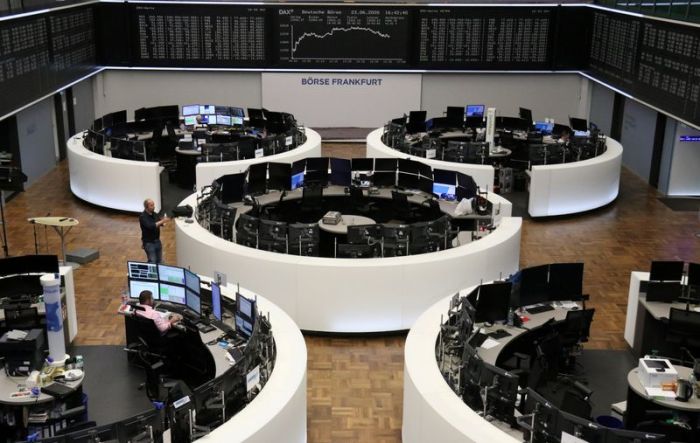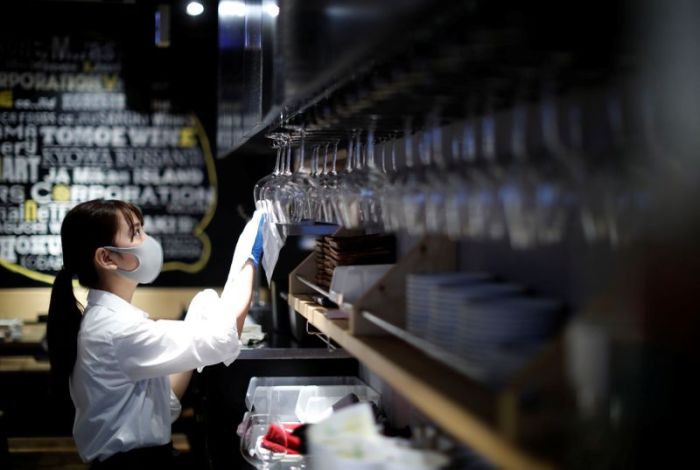TOKYO (Reuters) – Bank of Japan (BOJ) Governor Haruhiko Kuroda said second-round effects of the coronavirus pandemic could hurt the Japanese economy “considerably”, signalling the bank’s readiness to ramp up stimulus measures again to cushion any blow from the crisis.
But in an online seminar on Friday Kuroda said the central bank saw no immediate need to cut interest rates, and instead will focus on easing corporate funding strains and stabilising markets with its lending facility and asset purchases.
“Japan’s economy has been in an extremely severe situation … In the second quarter, we’ll likely see considerable negative growth,” Kuroda said.
“At this moment, we didn’t see the need to further lower the entire yield curve. Of course, if necessary we will do that. But now, we don’t think it’s necessary,” he said.
The BOJ eased policy in March and April, mainly by boosting asset buying and creating lending schemes to channel funds to companies hit by the pandemic. It has kept its interest-rate targets unchanged.
Kuroda said he was “cautiously optimistic” that Japan’s economy will gradually recover from the second half of this year, allowing the BOJ to scale back its crisis-response steps.
“Once the impact of COVID-19 on the economy has subsided, the economy starts to recover and comes back to a normal growth path, then of course our extraordinary measures may be gradually curtailed,” Kuroda said.
“But then, we have to achieve our 2% inflation target,” he said. “That’s unlikely to be met in the short run. The BOJ’s expanded balance sheet would not be normalised until 2% inflation is achieved.”
Under yield curve control, the BOJ guides short-term rates at -0.1% and long-term yields around zero. It also introduced several crisis-response tools, including a lending facility to ease funding strains that expires in March next year.
(Reporting by Leika Kihara; Editing by Chang-Ran Kim and Kenneth Maxwell)























